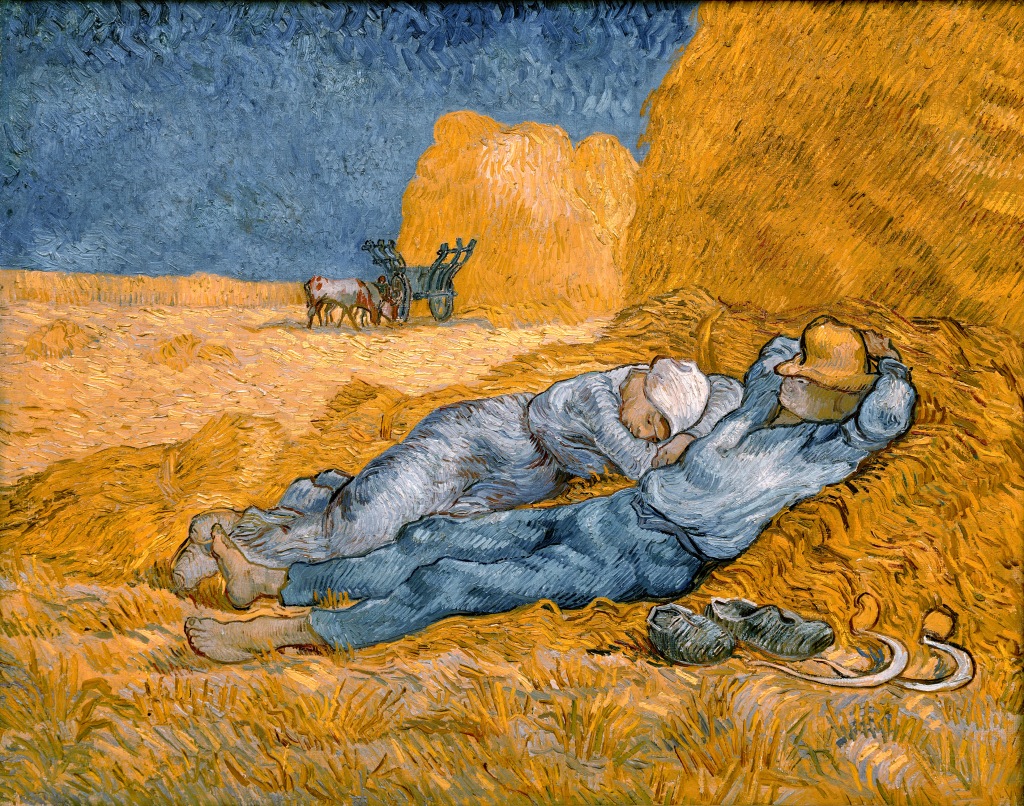After last week’s memories of Chirstmases past, this week we focus on recommendations for the winter break – the books, TV programmes, films, and music that we’ll be using to unwind over the coming weeks. Dina Rezk, our School Lead on Well-being, Inclusion, Diversity and Equality, opens the week with some reflections on the importance of rest.

Cold slows things down, Rebecca Solnit writes in her beautiful book, The Faraway Nearby. Solnit is a feminist, cultural historian and mystic wanderer whose writing is a frequent source of solace to me. Mainly because she is a scholar of the past who also cares deeply about what it means to be human and because she writes about subjects that truly preoccupy many of us: like fear, hope and loss. I read Solnit when I want to slow down. To pay attention. I read her when I am feeling unmoored. Which is often.
I find slowing down hard. Busyness becomes a habit. And habits become our life. The compulsion to do, to be productive, is engrained in everything- from our education to our workforce to our technology driven leisure and modes of communication. Being busy is revered. It proves to ourselves and others that we are doing enough. We struggle to ‘find time’ to rest.
But as our wonderful Stenton lecture last month showed, time is by no means fixed and immutable. It speeds up and slows down and is filled with the meaning we make of it. Author of Saving Time: Discovering a Life beyond the Clock, Jenny Odell, suggests that paying closer attention to the rhythms of nature might hold the key to a different experience of time. It was in fact an intimate encounter with the growth of moss on her windowsill that prompted her exploration of the industrial and colonial worldviews that have shaped our modern concept of time. Odell’s work makes me think that in a capitalist and hyper-consumerist economy demanding our money, labour and increasingly our attention, rest for the sake of rest (rather than simply a required interlude to be more productive) might even be seen as a quiet insurrection. I like this idea.
Of course, rest means different things to different people. When I was younger, books were my down time. These days walking is my favourite kind of rest. It’s the closest I get to doing nothing without feeling too antsy. Ideally, Solnit reflects, walking is a ‘state in which the mind, the body and the world are aligned, as though they were three characters finally in conversation together, three notes suddenly making a chord. Walking allows us to be in our bodies and in the world without being made busy by them. It leaves us free to think without being wholly lost in our thoughts.’ There is a quiet coherence to walking, to traversing a physical landscape, that allows us to see the interior workings of our bodies and minds a little more clearly. In that, I suppose walking is similar to reading, which reveals ‘an unknown territory that arises as you travel.’ As Solnit puts it, ‘Books are solitudes in which we meet.’
For some of us, rest, whatever form it takes, does not come easy. I’ve come to think of rest as a muscle, a practice, that must be cultivated to strengthen and grow. A quiet insurrectionary muscle that allows us to live with that little bit more vitality and joy.
Dina Rezk is Associate Professor in Middle Eastern History at the University of Reading.
All comments and opinions presented in this article are that of the author.
We have made every effort to abide by UK copyright law but in the instance of any mislabelling of images, please contact the author of the blog post
You must be logged in to post a comment.